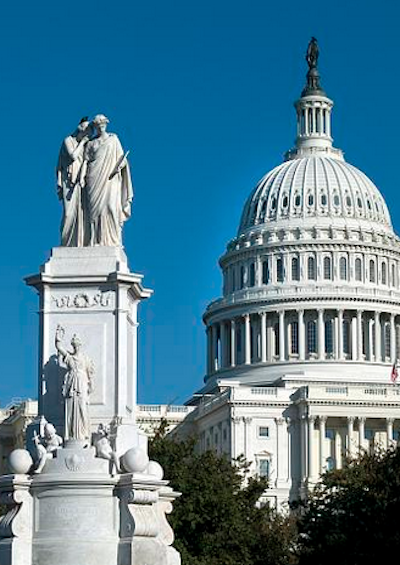Are You a Minister? (Or: It’s All About the Money, Stupid!)
An amazing conversation on the role and responsibility of elites in the U.S. capital.
January 23, 2009

Having lived in Washington for over a quarter century now, I always thought I had developed a thorough understanding of the place — its good sides as well as its bad ones.
In fact, after such a long time, there is an inevitable sense of déjà vu — of having seen most, if not all, of what’s to be learned. And then, there are those rare moments that bring everything into focus — and help one cut through all the clutter and see the real problem.
One of those moments came during a chance conversation I had with a dapper, brash young lawyer in town, as elegantly dressed as he was articulate and intelligent. He is an Ivy League product, equipped not just with a Harvard law degree, but also the beneficiary of receiving his undergraduate education there.
During those years, he had also studied the classics, mostly in the form of reading the texts of great men (no women included). That furnished him with all the values and leadership mantras one is supposed to receive as part of the package. In short, he was one of America’s finest — all the more so since this still under 40 black man had attended Harvard on a scholarship.
On the role and responsibility of elites
The topic of our conversation centered on the role — and responsibility — of elites in a society. He asked what I, as a foreigner, thought of the lay of the land.
I confessed to being puzzled about the fact that Washington’s elites — for all their sense of self-ascribed bravado, power and courage — seem to be quite cowed as a group. Most people seem curiously unconcerned about the direction and future prospects of the country as long as they were doing fine personally.
As evidence, I pointed to many dinner conversations where it was considered impolite, if not out of place, to engage in a critical examination of the potential consequences of what was going on in D.C.
I have heard some of the finest, Ivy League educated lawyers say at private dinners that they had no real opinion on key questions of the day. All they wanted to be known for is to be the best tax avoidance lawyer for venture capitalists and private equity investors. Having any “views” could only cloud their business prospects. There was no “upside” to engaging in such conversations.
It won’t come as a surprise then that I have heard lawyers, when they reached 70 and finally retired form their law firm careers, say that they greatly enjoyed their new status. Why? “Because for the first time in my life I get to say what I really think.” How much more powerfully can one describe a life essentially wasted?
My experience in Europe has been quite different. People there might fight each other on the public stage. However, when “in chambers,” say, at a dinner in a private home, those folks – leading lights in business, media, politics or another field – would vigorously and earnestly debate each other. The conversation often centered on what needed to happen to get the country out of its present mess.
Whether it is a violation of the rules of American optimism or whatever else, asking fundamental questions about the direction of the country is becoming less and less part of the canon of conversation in Washington, D.C.
What’s your profession?
When I presented my interlocutor with some of these thoughts, the Harvard man looked at me puzzled and asked: “What’s your profession?”
“Why do you ask?”
“I mean, are you a minister?”
That brought a smile to my face. “I have been called many things in my life — but nobody has yet taken me for a man of the church. What made you think that?”
“Well, it’s because you address such fundamental questions,” he responded.
To which I said, “You know, when I moved to Washington in the mid-1980s, the folks living here, unlike the ones in New York City, were not all about money. The plan was to lead a meaningful life, also engaging in some of the broader public policy questions, while earning a decent — if certainly not stellar — income.”
My conversation partner now looked at me with a broad grin, and asked: “Tell me, how long have you lived in this city by now?”
“Over 25 years.”
“Oh man, oh man. That long — and you still don’t get it after all those years,” he called out.
“What is it I am still not getting?”
“At long last, you ought to understand that it doesn’t matter one iota what you think of this president’s or that president’s policies. The only thing that does matter is that you know how to make money off it.”
Having thus concluded his emphatic lesson in D.C. civilization skills, he turned away from me and said: “I think I need to get another drink. Best of luck to you.”
Whenever a new President of the United States is elected and hopes for a better future run high, it is important to remember this lesson. Entrenched D.C. insiders — overly focused on their personal profit and vested interests — are alive and well. Will they change their ways?
Takeaways
D.C. insiders are overly focused on their personal profit and vested interests.
It doesn't matter one iota what you think of a president's policies - just how to make money off it.
Washington's elites — for all their sense of self-ascribed bravado, power and courage — actually seem to be quite cowed as a group.
Most "players" in DC seem curiously unconcerned about the direction and future prospects of the country as long as they were doing fine personally.
Read previous
Obama’s Moment
January 20, 2009
